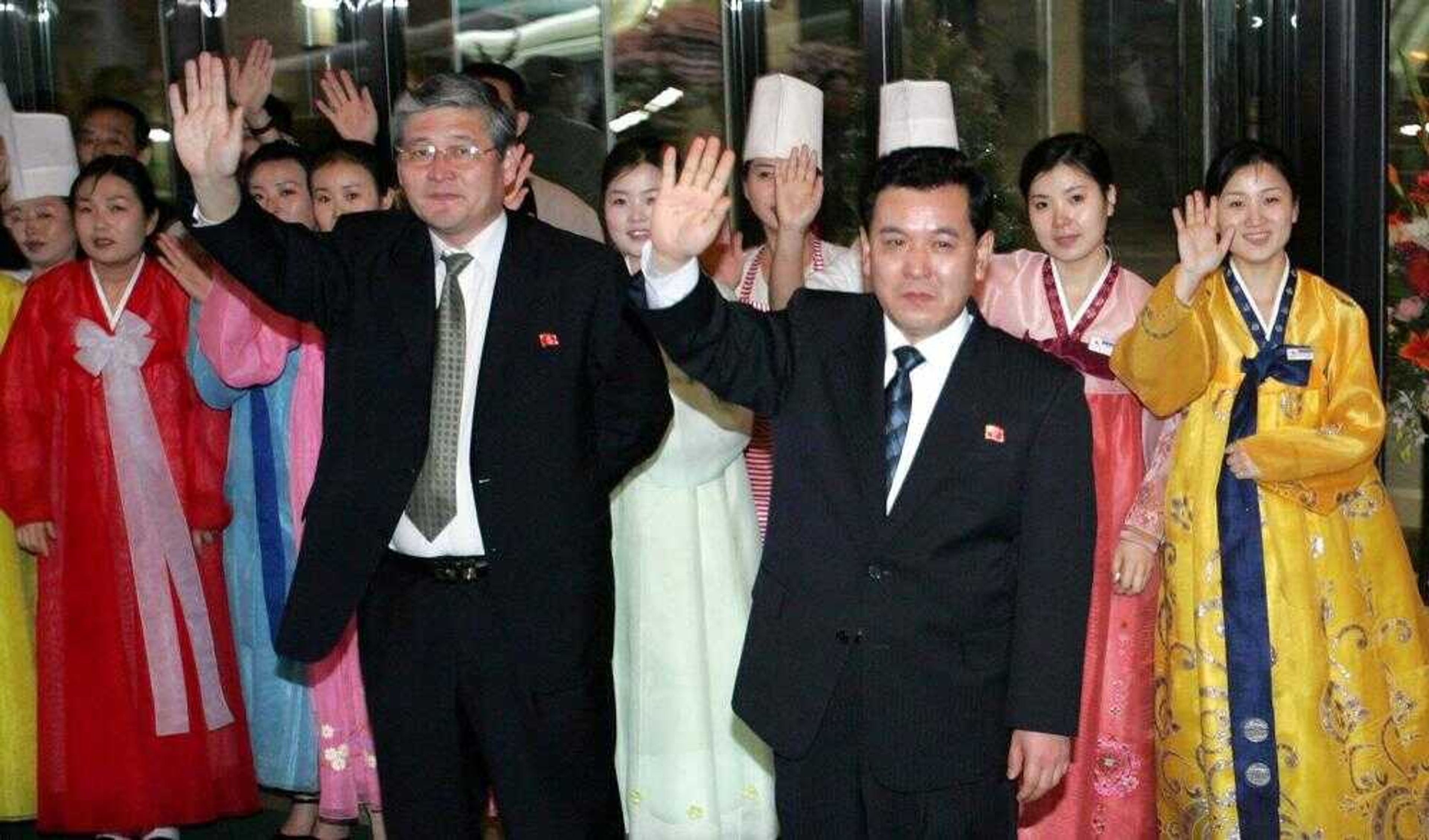S. Korea pressures N. Korea to shut down nuclear reactor by withholding full resumption of aid
SEOUL, South Korea -- South Korea added pressure on North Korea to comply with an international disarmament agreement on Friday, refusing the impoverished nation's demand to restore full aid shipments until after its main nuclear reactor is shut down...
SEOUL, South Korea -- South Korea added pressure on North Korea to comply with an international disarmament agreement on Friday, refusing the impoverished nation's demand to restore full aid shipments until after its main nuclear reactor is shut down.
At the first high-level talks between the two Koreas since the North's underground nuclear test in October, the communist nation "agreed to make joint efforts for a smooth implementation" of its pledge last month to take initial steps toward dismantling its atomic program, according to a final statement.
North Korea and the International Atomic Energy Agency have agreed on March 13 as the starting date for a two-day visit by the agency's chief, Mohamed ElBaradei, U.N. officials said Friday. The officials asked for anonymity because they were not authorized to reveal specifics of the trip, which is expected to help alleviate some misgivings that the unpredictable regime might renege on the agreement to shut down and disable its nuclear facilities.
This week's meetings in Pyongyang were part of the historic reconciliation launched between the Koreas since their leaders met in their first-and-only summit in 2000. The countries remain technically at war since the cease-fire that ended the 1950-53 Korean War has never been replaced by a peace treaty.
But attempts to bring the countries together have been complicated since 2002, when Washington accused North Korea of secret uranium enrichment efforts the United States said violated an earlier disarmament deal.
The situation deteriorated further last July when North Korea test-launched a series of missiles, prompting South Korea, one of the main sources of aid such as rice and fertilizer to the North, to put the shipments on hold.
Relations worsened after North Korea's Oct. 9 nuclear test, but eventually led to a revival of deadlocked six-nation nuclear negotiations -- including China, Japan, Russia, the United States and the two Koreas -- which led to a breakthrough Feb. 13 accord where the North pledged to make moves toward abandoning its nuclear program.
North Korea is set to get an initial 50,000 tons of heavy fuel oil for shutting down its reactor as part of the arms agreement, part of a total eventual equivalent of 1 million tons of oil for dismantling all its nuclear facilities. North Korea is also moving to normalize ties with the United States and Japan at meetings scheduled next week.
However, Deputy Secretary of State John Negroponte said Friday that North Korea will have to take substantial steps to abandon its nuclear weapons ambitions before the United States considers lifting sanctions or removing it from the list of nations sponsoring terrorism.
"This is not a process that we would expect to move very rapidly," said Negroponte, who met with Japanese officials in Tokyo.
At the talks that ended Friday in Pyongyang, North Korea had demanded that economic cooperation negotiations -- where food aid between the sides is normally addressed -- resume this month.
However, South Korea consented only to scheduling those meetings immediately following an April 14 deadline for the North to shut down its sole operational nuclear reactor at Yongbyon, 55 miles north of Pyongyang.
The South's chief negotiator, Unification Minister Lee Jae-joung, said after returning to Seoul that South Korea would proceed with rice aid by "taking into account progress" at the six-nation nuclear talks as well as inter-Korean contacts and public sentiment. The North has requested 400,000 tons of rice, he said.
He said North Korea also asked for 300,000 tons of fertilizer.
Connect with the Southeast Missourian Newsroom:
For corrections to this story or other insights for the editor, click here. To submit a letter to the editor, click here. To learn about the Southeast Missourian’s AI Policy, click here.








